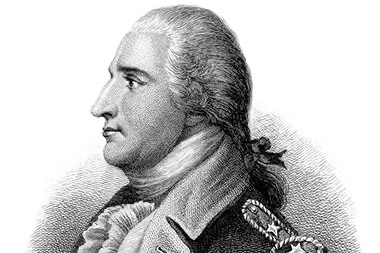
Though Mary was strikingly beautiful, she was vulnerable in two areas. The first was obvious – she was childless, weighing her down with incompleteness. The second only surfaced after I had been her pastor for some time. Gifted in hospitality, she and Bill, her husband, opened their home often to members of our congregation. After serving several Saturday night dinners without any reciprocation — in a moment of irritated and unvarnished honesty — she asked me: “Pastor, why don’t people appreciate us and invite us back to their home for dinner?” Mary felt unappreciated.
Most of us have felt unacknowledged. Undervalued. Unappreciated. We are wired with an emotional desire to be thanked and affirmed. But for a Christian to appeal for encouragement may not yield the desired result (an asked-for kiss is not worth much).
However, Scripture legitimatizes the obligation of one Christian to take the initiative to encourage another (I Thessalonians 4:18, Romans 14:19). A wife, boss or young husband should be sensitive to the following situations (respectively):
- A husband who works hard to provide for his family, but feels his wife does not realize the emotional or physical cost.
- An employee who thinks the company is not rewarding his diligence.
- A young mother who is weary of diapers and dishes.
Scripture says that sometimes we do need to speak up for ourselves and communicate what is happening in our hearts and minds (Luke 17:3). That problem would be the worthy subject of a different article. Our focus here is on the person who is hoping for encouragement, but not getting it.
These next several blog articles provides perspective on this spiritual frontier by looking at the lives of Benedict Arnold, the American Revolutionary War general (1775-1781) and Moses, the man who led the Israelite nation through a desert to the promised land (1446 -1406 B.C.) as reported in Exodus, Leviticus, Numbers and Deuteronomy. Both men faced opposition, but responded differently.
The purpose of looking at Moses and Benedict Arnold is to help us see that our desire for affirmation, identity, security and confidence can be met by enjoying and serving the Living God. As a by-product, we are appreciated by others and come to feel nourished by the friendships and relationships which arise.
Benedict Arnold The American Revolutionary War General was a colorful, alpha male driving personality. Surrounded by do-nothing generals, Arnold won battle after battle. Called the “Hannibal of the American Army,” his exploits electrified the colonies.
The Revolutionary War served as an arena for his ambition – a theatre large enough to satisfy his hunger for the heroic, expectation for the extraordinary and thirst for applause.
In strategy sessions, when others saw only parts of victory, Arnold saw the whole. He was brilliant. A demon of energy, no one worked harder. No one got by on less sleep or risked his life more frequently. In the field, he did not demand normal officer’s privileges. His hot spirit of determination was contagious. When his horse was shot from underneath him by nine bullets, Arnold got another and continued to inspire his men.
On October 7, 1777, in direct defiance of his immediate superior, Arnold led a force against Burgoyne’s regulars and Hessians. Though severely wounded, Arnold won a stunning victory at the Battle of Saratoga. Some history books say it was a turning point of the war. Arnold was the hero of the day.
But consider some difficulties he faced as a military officer:
* Little Help from the Weak Colonial Government Suspicious of European centralized government, Colonists refused to grant sufficient power to the Continental Congress. When the common defense against Britain had to be undertaken, the Colonial government printed paper money that soon became nearly worthless. Colonists refused to accept it. British currency was accepted and hidden food appeared, but paper money went hungry as struggling Colonists sold to the British. With worthless money, the army had little gunpowder, shot, food, blankets or uniforms.
* Doing What was Right in their Own Eyes American officers — each deciding his work was most important – commandeered food, horses, men, and equipment. Sudden promotions were handed out in the field in hopes of creating loyalty and obedience. A cash-desperate Congress sold high army positions to unqualified, non-military French gentlemen, a practice understandably resented by the common foot soldier.
* A Desperate Colonial Army Losing an early battle, a colonial army of the damned — barely alive — retreated. What hunger and exhaustion did not ravage, smallpox and cold weather did. A winter in Valley Forge was brutal. During summers, flies and mosquitoes pestered the faces of weary soldiers.
Life Turned Sour While victories accumulated, so did enemies. Arnold had arrogantly ridiculed those who disagreed with him. He challenged more than one man to a duel. When Arnold tried to collect from Congress the money he had advanced to the army out of his own pocket, he was put off, congressional accountants claiming his documents were “not in order.” When Congress promoted five of his junior officers over his head while delaying his own promotion, Arnold tendered his resignation.
General George Washington appealed to his temperamental, charisma-laden warrior and Arnold relented. He continued serving the fledging country. However, his injuries now prevented him from taking an active field position.
*Arnold’s military governorship of Philadelphia also became a negative. The city of brotherly love accused the flamboyant Arnold of fraternizing with Tory women (those loyal to Britain), profiteering on scarce food supplies, getting rich at the expense of others, using public means of transportation (wagons) for personal gain and sacrificing the lives of some soldiers to his ego.
The problems of Mr. Arnold multiplied.
To be resumed in the next posting.


Trackbacks/Pingbacks